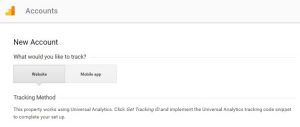Most people know that around fifty five per cent of start-ups fail within the first five years. Of those that do survive, thirty five per cent cite cash flow problems and late payments as key barriers to growth.
Cash flow is the blood that flows through the veins of your business. It’s essential, and without it, your business will topple and eventually fall.
Managing your cash flow should be one of your main priorities. Sounds obvious, right? Then why is it that one in ten businesses are failing to accurately forecast their cash flow, or are neglecting this area of their business altogether?
Let’s look at some of the most common cash flow killers and some smart advice for overcoming these pitfalls.
Cash Flow Killer: Paying everyone at once
It can be tempting to pay every bill as soon as it comes in. That way you don’t have to worry about forgetting to pay and you also don’t have the bill looming over your head.
This is a bad move. Paying your suppliers, without following some kind of strategy, could potentially end in chaos. You may end up not having enough money in the bank to pay other suppliers, causing cheques to bounce and sour relationships to form.
Cash Flow Saviour: Set up a payment schedule
Make a note of payment deadlines and stagger your payments accordingly. You can easily do this in an electronic calendar or via an app. This is a clever way to manage your finances, as you should not be paying suppliers if it leaves you in the red.
Remember, many suppliers will offer flexible financing, as long as you arrange this before there are any missed payments. Take advantage of these, and avoid late payment charges.
Cash Flow Killer: Unreliable clients
What’s potentially worse than you missing a payment? Yes, one of your own clients missing a bill due date. Sacré bleu!
Over seventy per cent of small businesses have had to deal with clients paying their invoices late. Two thirds of these even had to write the invoice off altogether!
But of course, it doesn’t have to be this way.
Cash Flow Saviour: Clear payment instruction
Make sure you don’t have to deal with late payments by billing people with professional and concise invoices. Include clear late payment terms and conditions, so your clients are fully aware of the repercussions of late payment. In the event of a late payment, don’t forget that all businesses are entitled to the right to take advantage of late payment legislation. This enables businesses to claim interest, on late payment and debt recovery costs
Never under estimate the power of incentives and loyalty schemes. Why not offer clients a discount if they pay within a certain period? If you’re increasing your prices, offer your lower price to long-term customers for an extended period of time.
Cash Flow Killer: Forgetting that cash is king
Turnover is vanity, profit is sanity, but never forget that cash is king.
Is there anything more frustrating than needing money, and knowing you have the money, but being unable to get your hands on it in time? If you need to get your hands on funds quickly, nothing beats being able to withdraw cash from a machine.
Despite this common conception, 2.5 million businesses would be forced to shut their doors permanently if unforeseen circumstances forced them to stop trading for just a fortnight. Isn’t that crazy?
It’s worrying too. After all, could you be one of those businesses?
Cash Flow Saviour: Build a cash reserve
A report by YouGov has revealed that an alarming twenty per cent of small business owners have no cash reserve at all.
You must have a cash cushion to call upon in the event of unplanned expenses. This might include hiring more staff during a busy period, buying more stock, repairing equipment or covering costs of a late payment.
Advice varies across the internet, and it does depend what business you’re in, but the general amount you should have in you reserves is between three and six months’ worth of earnings, to help you weather the storm in leaner times.
Cash Flow Killer: Ignoring seasonal trends
Sixty one per cent of small and medium sized UK businesses are affected by the seasons. Five per cent of these businesses close during low season to keep costs down.
Not planning for seasonal trends leaves your business vulnerable. Needless to say, this is a big mistake.
Cash Flow Saviour: Plan for the seasons
You should have some kind of cash reserve for yearly downtime. This should keep you afloat whilst your business isn’t earning any, or as much, money. Take a look at what your competitors are doing at this time of year and see if there is a gap in the market you can exploit.
Why not diversify your business? A landscape gardener who works outside during the warmer months might offer driveway clearance or snow ploughing services in the winter
You can also use these quieter months to concentrate on building your business behind the scenes. Revisit your marketing campaigns and update your website.
The key point to remember is that off-season doesn’t mean off work. You can double your income by thinking smart and offering a complementary service or product.
Starting a small business is a huge step. Give yourself the best chance of success by scheduling time in your diary for regular cash flow reviews and make sure you’re in the forty-five per cent of small businesses who do make it beyond their first five years.
Business & Finance Articles on Business 2 Community(100)







